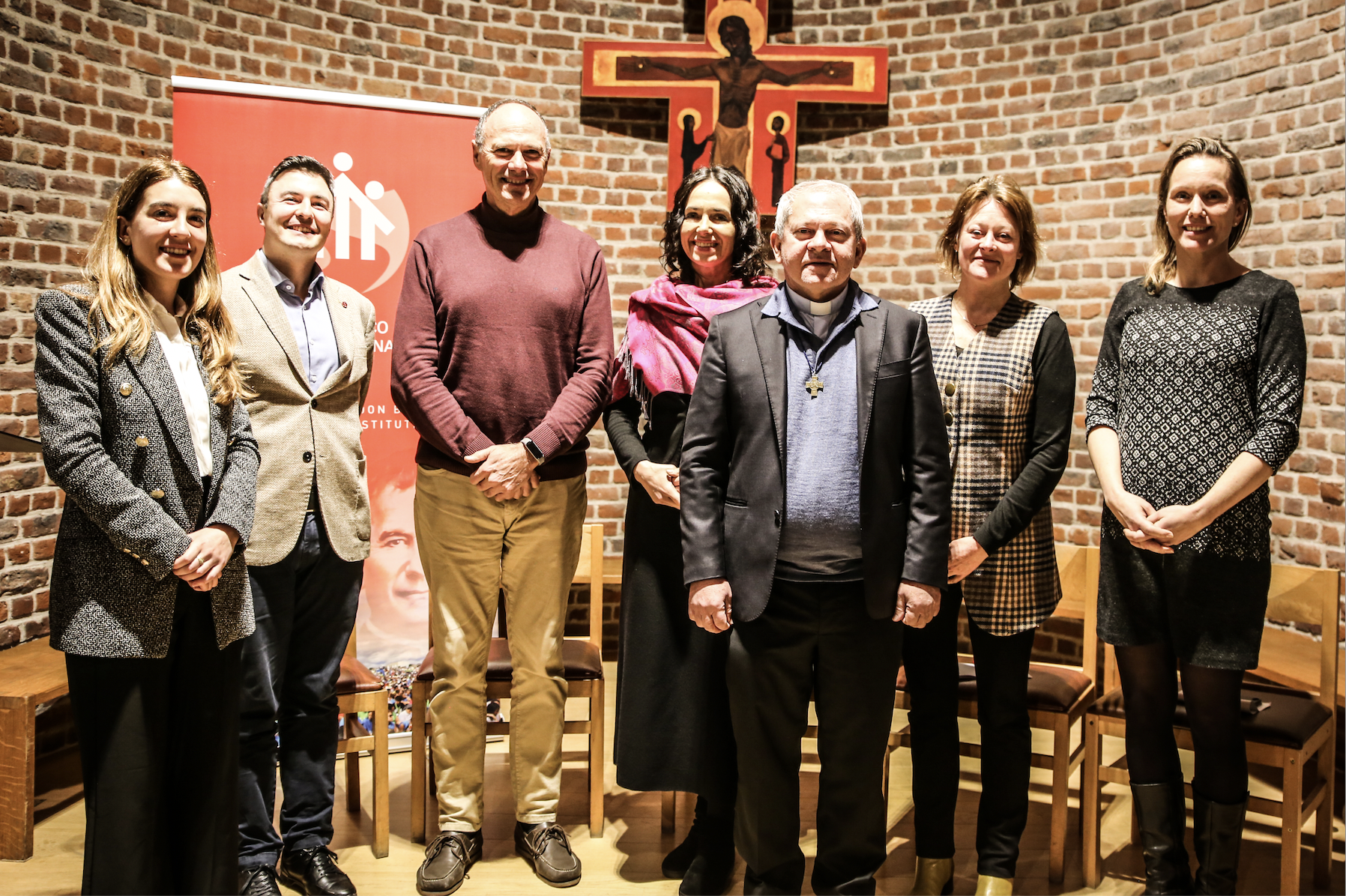Research launched by Caritas Europa and Don Bosco International on the social and professional future of young people in post-Covid Europe
On 31 January, Don Bosco International[1] and Caritas Europa[2] launched their new report “From malaise to rebirth” in the realm of Don Bosco’s feast, which was celebrated in Brussels at the Chapel for Europe.
The launch event was characterised by a constructive dialogue between representatives of the European Institutions, civil society organisations, and the Salesian family. The special speakers included: Fr. Gildásio Mendes as General Councilor for Social Communication, Hon. Patrizia Toia (S&D) and Hon. Miriam Lexmann (EPP) as Members of the European Parliament, Joao Santos of the European Commission (DG EMPL), Renato Cursi (Director General of Salesiani per il Sociale), Shannon Pfohman (Director for Policy and Advocacy at Caritas Europa), and Maria Nyman (Secretary General of Caritas Europa).
During his speech, Fr. Mendes highlighted the need to listen to young people’s necessities and desires in order to give them proper answers and build meaningful actions. In this regard, the collaboration between institutions and reliable organisations is crucial for implementing long-lasting good and fair social policies.
The study shows the impact of COVID-19 restrictions on Vocational Education and Training (VET), revealing that over 57% of young people interviewed consider their education inadequate compared to before the pandemic. The pandemic hit young people from disadvantaged backgrounds particularly hard. They had difficulties with e-learning and suffered from the digital divide in which those with better access to technology and fast internet connections found it easier to continue learning. The research findings analyse 375 surveys completed by students aged between 14 and 22 who have been relying on Caritas’ social services or attended VET centres run by Don Bosco in Albania, Finland, Greece, Italy, and Portugal.
A significant proportion of young people declared that they did not feel prepared to enter the workforce; this concerns over 30% of the interviewees in Italy. While 57% of the young people in the survey feel professionally underprepared, this explains the lower number of students transitioning from school into the workforce from 2020 to 2022.
According to the research, the sectors that suffered the most were those connected to the hospitality industry (tourism/restaurants/hotels) and to wellness/personal care services. Young people were also penalised from the point of view of their choice of career paths and their future employment and training. For many, it was impossible to travel abroad, and less than 9% of the interviewees participated in international exchange experiences abroad. As stated in the policy recommendations included in the report, For Caritas Europa and Don Bosco International, it is crucial to reinforce the European programme in support of young people, the Youth Guarantee, through coherent actions and intergenerational solidarity.As affirmed by Fr Miguel Ángel García Morcuende, SDB Youth Ministry and President of Don Bosco International, in the joint press release: “‘We are seriously concerned about the current number of young people at risk of poverty in Europe. At the end of 2020, more than 700.000 young people in the European Union were not in employment, education, or training (NEETs). The impact of the pandemic and subsequent economic crisis on our young people and their employability calls for urgent policy actions.”
[1] Don Bosco International is the body that represents the Salesian Congregation to the European Institutions (EU).
[2] Caritas Europa is a network of 49 member organisations in 46 European countries and one of the 7 regions of Caritas Internationalis. Their members assist and provide services to millions of people in need.


Leave A Comment